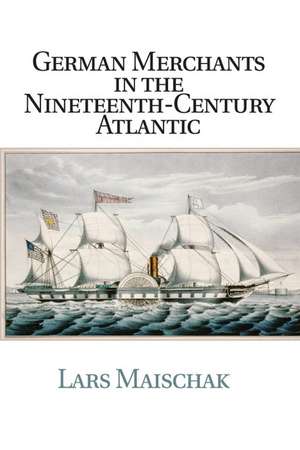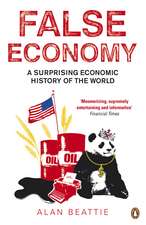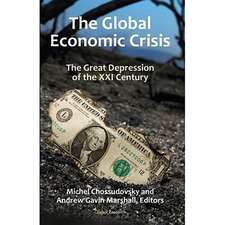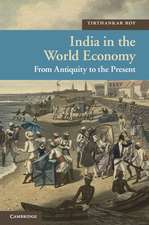German Merchants in the Nineteenth-Century Atlantic: Publications of the German Historical Institute
Autor Lars Maischaken Limba Engleză Paperback – 7 oct 2015
| Toate formatele și edițiile | Preț | Express |
|---|---|---|
| Paperback (1) | 289.39 lei 6-8 săpt. | |
| Cambridge University Press – 7 oct 2015 | 289.39 lei 6-8 săpt. | |
| Hardback (1) | 696.80 lei 6-8 săpt. | |
| Cambridge University Press – 28 apr 2013 | 696.80 lei 6-8 săpt. |
Din seria Publications of the German Historical Institute
- 14%
 Preț: 757.52 lei
Preț: 757.52 lei - 8%
 Preț: 530.73 lei
Preț: 530.73 lei -
 Preț: 283.52 lei
Preț: 283.52 lei - 14%
 Preț: 757.52 lei
Preț: 757.52 lei -
 Preț: 352.64 lei
Preț: 352.64 lei - 11%
 Preț: 695.06 lei
Preț: 695.06 lei -
 Preț: 207.41 lei
Preț: 207.41 lei -
 Preț: 282.17 lei
Preț: 282.17 lei - 11%
 Preț: 574.38 lei
Preț: 574.38 lei -
 Preț: 289.39 lei
Preț: 289.39 lei - 14%
 Preț: 1279.78 lei
Preț: 1279.78 lei -
 Preț: 327.41 lei
Preț: 327.41 lei -
 Preț: 439.33 lei
Preț: 439.33 lei - 11%
 Preț: 552.00 lei
Preț: 552.00 lei - 11%
 Preț: 524.04 lei
Preț: 524.04 lei - 14%
 Preț: 871.52 lei
Preț: 871.52 lei - 11%
 Preț: 458.99 lei
Preț: 458.99 lei - 14%
 Preț: 755.87 lei
Preț: 755.87 lei -
 Preț: 453.12 lei
Preț: 453.12 lei - 14%
 Preț: 756.70 lei
Preț: 756.70 lei -
 Preț: 331.28 lei
Preț: 331.28 lei -
 Preț: 318.06 lei
Preț: 318.06 lei - 14%
 Preț: 755.69 lei
Preț: 755.69 lei -
 Preț: 353.83 lei
Preț: 353.83 lei - 11%
 Preț: 578.20 lei
Preț: 578.20 lei -
 Preț: 321.90 lei
Preț: 321.90 lei -
 Preț: 284.78 lei
Preț: 284.78 lei - 14%
 Preț: 937.61 lei
Preț: 937.61 lei -
 Preț: 471.93 lei
Preț: 471.93 lei -
 Preț: 422.91 lei
Preț: 422.91 lei - 11%
 Preț: 589.88 lei
Preț: 589.88 lei -
 Preț: 315.72 lei
Preț: 315.72 lei - 11%
 Preț: 693.36 lei
Preț: 693.36 lei - 14%
 Preț: 870.01 lei
Preț: 870.01 lei -
 Preț: 287.07 lei
Preț: 287.07 lei - 23%
 Preț: 950.10 lei
Preț: 950.10 lei -
 Preț: 384.34 lei
Preț: 384.34 lei -
 Preț: 448.49 lei
Preț: 448.49 lei - 5%
 Preț: 312.62 lei
Preț: 312.62 lei -
 Preț: 319.52 lei
Preț: 319.52 lei -
 Preț: 243.74 lei
Preț: 243.74 lei
Preț: 289.39 lei
Nou
Puncte Express: 434
Preț estimativ în valută:
55.38€ • 59.21$ • 46.17£
55.38€ • 59.21$ • 46.17£
Carte tipărită la comandă
Livrare economică 17 aprilie-01 mai
Preluare comenzi: 021 569.72.76
Specificații
ISBN-13: 9781107566996
ISBN-10: 1107566991
Pagini: 318
Ilustrații: 7 b/w illus. 3 maps 14 tables
Dimensiuni: 155 x 234 x 19 mm
Greutate: 0.49 kg
Editura: Cambridge University Press
Colecția Cambridge University Press
Seria Publications of the German Historical Institute
Locul publicării:New York, United States
ISBN-10: 1107566991
Pagini: 318
Ilustrații: 7 b/w illus. 3 maps 14 tables
Dimensiuni: 155 x 234 x 19 mm
Greutate: 0.49 kg
Editura: Cambridge University Press
Colecția Cambridge University Press
Seria Publications of the German Historical Institute
Locul publicării:New York, United States
Cuprins
Index of tables, graphs, and maps; Glossary; Prologue; Introduction; Part I. Moorings of the Hanseatic Network: 1. Prudent pioneers: Hanseats in trans-Atlantic trade, 1798–1860; 2. The Hanseatic household: families, firms, and faith, 1815–64; 3. Cosmopolitan conservatives: home-town traditions and Western ideas in Bremish politics, 1806–60; Part II. Exchanges: In a Transnational World: 4. Free labor and dependent labor: from patronage to wage labor and social control, 1815–61; 5. International improvement: Hanseats, Hamiltonians, and Jacksonians, 1845–60; 6. Nations, races, and empires: Hanseats encounter the other, 1837–59; Part III. Decline of a Cosmopolitan Community: 7. The end of merchant-capital: crisis and adaptation in a world of industrial capitalism, 1857–90; 8. Decisions and divisions: Hanseatic responses to nation-making wars, 1859–67; 9. Patriarchs into patriots: Hanseats in a world of nation-states, 1867–1945; Conclusion; Appendix: maps; Sources; Bibliography.
Recenzii
'Lars Maischak's research on Hanseatic merchant capitalism and its transatlantic economic networks marks a signal achievement in Atlantic World scholarship. By integrating German Hanseatic networks into the Atlantic economy of antebellum America and northern Europe, Maischak throws light on a much-neglected component of nineteenth-century transnationalism. Alive to the cultural attitudes that shaped the business practices of merchant communities, Maischak deftly deploys numerous lenses to study how cosmopolitan conservative patrician traders, in abetting the rise of industrial world markets, brought about their own decline. This insightful and wide-ranging discussion elegantly restores the economic and sociopolitical world of merchant capitalists, whose compelling story runs counter to the dominant narratives of nation-states and industrialization. Well written and conceptually smart, this book speaks to numerous discussions in nineteenth-century studies.' James M. Brophy, University of Delaware
'Painstakingly tracing the transnational community of Hanseatic merchants living in Bremen, New York, and Baltimore, Lars Maischak recovers the global dimensions of the antebellum American economy. Deftly managing German and American sources and tracing German-American ties beyond the marketplace to the political and intellectual clubs and associations of New York and Baltimore, Maischak convincingly demonstrates that the origins of American industrial capitalism in the nineteenth century depended on institutions and practices developed in a transnational context. In the process he explains how this community of elite merchants helped transform an Atlantic marketplace into a global one.' Christian J. Koot, Towson University
'Lars Maischak's study of the merchants of Bremen in Germany and North America is an excellent work of nineteenth-century history. Deeply researched and elegantly argued, the book's trans-Atlantic perspective offers intriguing insights into a wide variety of topics: from the gendered administration of family property to the doctrines and practice of nineteenth-century conservatism, and from a consideration of the supporters and opponents of nationalism to an analysis of the financial and economic transition from mercantile to industrial capitalism.' Jonathan Sperber, University of Missouri
'… a detailed exposé … [Maischak's] work significantly pushes scholars of the antebellum United States and of circa-1848 Germany to extend their narratives.' Kristin L. Condotta, H-Soz-u-Kult
'Painstakingly tracing the transnational community of Hanseatic merchants living in Bremen, New York, and Baltimore, Lars Maischak recovers the global dimensions of the antebellum American economy. Deftly managing German and American sources and tracing German-American ties beyond the marketplace to the political and intellectual clubs and associations of New York and Baltimore, Maischak convincingly demonstrates that the origins of American industrial capitalism in the nineteenth century depended on institutions and practices developed in a transnational context. In the process he explains how this community of elite merchants helped transform an Atlantic marketplace into a global one.' Christian J. Koot, Towson University
'Lars Maischak's study of the merchants of Bremen in Germany and North America is an excellent work of nineteenth-century history. Deeply researched and elegantly argued, the book's trans-Atlantic perspective offers intriguing insights into a wide variety of topics: from the gendered administration of family property to the doctrines and practice of nineteenth-century conservatism, and from a consideration of the supporters and opponents of nationalism to an analysis of the financial and economic transition from mercantile to industrial capitalism.' Jonathan Sperber, University of Missouri
'… a detailed exposé … [Maischak's] work significantly pushes scholars of the antebellum United States and of circa-1848 Germany to extend their narratives.' Kristin L. Condotta, H-Soz-u-Kult
Notă biografică
Descriere
Studies the ties between America and Bremen in the nineteenth century, illuminating the role of merchant capital in making an industrial-capitalist world economy.















